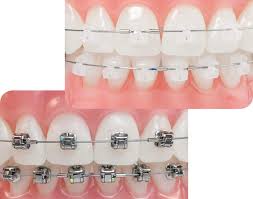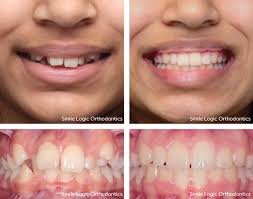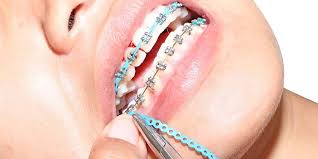This article will tell you everything you need to know before you get braces in Glasgow. Including other oral issues that braces can help fix, cost of treatment and legal obligations to your orthodontist once the contract is signed.

You Can Get Braces in Glasgow at Any Age
There used to be a common misconception that braces were only for teens. This isn’t the case and in fact, many adults opt for braces to correct issues that may not have been corrected when they were younger. Many adults opt for invisible braces as they are pretty much unnoticeable and allow them to go about their day-to-day life as normal.

Straight Teeth Are Not Everything
Although braces are very commonly used to straighten teeth, they can also be used for a number of different reasons. Before getting braces in Glasgow, your orthodontist will examine your mouth for many different issues and may ask you a lot of questions to review your situation effectively. You may get asked about things such as;
- Previous jawbone pain
- Problems with bleeding gums
- Loose or jagged feeling teeth
- If you can stick your tongue out in front of your teeth
Problems with Bite
Another common issue that braces can solve, other than straightening teeth, is problems with bite. Some people naturally have an overbite, underbite or crossbite, which can all be fixed with the use of braces. Fixing issues with bite can help a range of problems, such as TMJ related headaches, problems with chewing and problems with speaking (e.g. a lisp).

Cost and Treatment Will Differ
The bad news is that if you want braces in Glasgow, it isn’t likely to come cheap. Costs will vary depending on treatment options and the orthodontist that you choose, as well as the duration of treatment and if you’re getting braces for functional or purely cosmetic reasons. On average, getting braces at a private dentist will cost between £2,000-£2,500. If you need braces to improve mouth or jaw function, then you could be looking at paying around £219 with the NHS. However, NHS waiting lists are extremely long, so if you’re looking to get the ball rolling as soon as possible, then this may not be the best option for you.

Switching Orthodontist During Treatment Can Be An Expensive Legal Process
There are many reasons that a person may have to switch orthodontists during treatment, including;
- Unhappy with the service
- Moving house
If you do end up upping and leaving in the middle of treatment, the process of signing up for a new orthodontist isn’t as clear-cut as you might think.
Patients need to sign a legally binding contract at the beginning of their treatment and moving during this time will mean that negotiations need to be made on how much treatment has been received and how much needs to be paid for the treatment that has been done. At times, there can be discrepancies if the patient and orthodontist do not agree on how much the treatment completed has cost.
It doesn’t end there though, even if you settle on a price with your previous orthodontist, you will likely not be able to pick up where you left off with the new one. Many orthodontists require treatment to start from the beginning when moving practice, so if you are in the last stages of your treatment you may want to hold off moving for a bit or you run the risk of having to pay to start treatment all over again, resulting in you having braces in Glasgow for even longer.


Daniel Hughes is a legal writer dedicated to simplifying complex legal topics for a wider audience. He focuses on workers’ rights, legal processes, and providing practical advice for navigating workplace injury claims.


